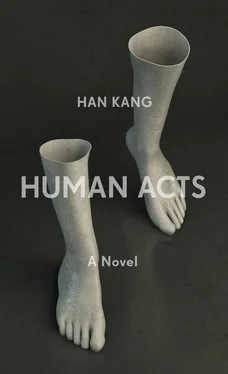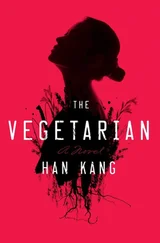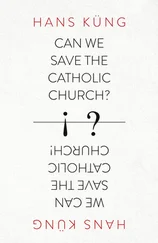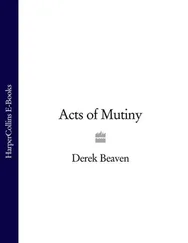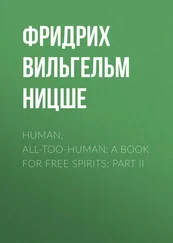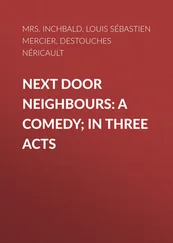Han Kang - Human Acts
Здесь есть возможность читать онлайн «Han Kang - Human Acts» весь текст электронной книги совершенно бесплатно (целиком полную версию без сокращений). В некоторых случаях можно слушать аудио, скачать через торрент в формате fb2 и присутствует краткое содержание. Год выпуска: 2016, Издательство: Portobello Books, Жанр: Современная проза, на английском языке. Описание произведения, (предисловие) а так же отзывы посетителей доступны на портале библиотеки ЛибКат.
- Название:Human Acts
- Автор:
- Издательство:Portobello Books
- Жанр:
- Год:2016
- ISBN:нет данных
- Рейтинг книги:4 / 5. Голосов: 1
-
Избранное:Добавить в избранное
- Отзывы:
-
Ваша оценка:
- 80
- 1
- 2
- 3
- 4
- 5
Human Acts: краткое содержание, описание и аннотация
Предлагаем к чтению аннотацию, описание, краткое содержание или предисловие (зависит от того, что написал сам автор книги «Human Acts»). Если вы не нашли необходимую информацию о книге — напишите в комментариях, мы постараемся отыскать её.
Human Acts
Human Acts — читать онлайн бесплатно полную книгу (весь текст) целиком
Ниже представлен текст книги, разбитый по страницам. Система сохранения места последней прочитанной страницы, позволяет с удобством читать онлайн бесплатно книгу «Human Acts», без необходимости каждый раз заново искать на чём Вы остановились. Поставьте закладку, и сможете в любой момент перейти на страницу, на которой закончили чтение.
Интервал:
Закладка:
The one stage in the process that you couldn’t quite get your head around was the singing of the national anthem, which took place at a brief, informal memorial service for the bereaved families, after their dead had been formally placed in the coffins. It was also strange to see the Taegukgi, the national flag, being spread over each coffin and tied tightly in place. Why would you sing the national anthem for people who’d been killed by soldiers? Why cover the coffin with the Taegukgi? As though it wasn’t the nation itself that had murdered them.
When you cautiously voiced these thoughts, Eun-sook’s round eyes grew even larger.
‘But the generals are rebels, they seized power unlawfully. You must have seen it: people being beaten and stabbed in broad daylight, and even shot. The ordinary soldiers were following the orders of their superiors. How can you call them the nation?’
You found this confusing, as though it had answered an entirely different question to the one you’d wanted to ask. That afternoon there was a rush of positive identifications, and there ended up being several different shrouding ceremonies going on at the same time, at various places along the corridor. The national anthem rang out like a circular refrain, one verse clashing with another against the constant background of weeping, and you listened with bated breath to the subtle dissonance this created. As though this, finally, might help you understand what the nation really was.
The next morning, you and the two women carried several of the most putrid bodies out to the yard behind the Provincial Office. So many new bodies were arriving, there was no more space to lay them out inside. Jin-su came marching from the briefing room, brisk as always, and demanded to know what you were planning to do if it rained.
He frowned as he scanned the passageway, where the corpses had their feet jammed up against the wall. Seon-ju unhooked her mask.
‘It’s too narrow here,’ she said, ‘there’s just no way. There’ll probably be more corpses arriving in the evening, so what’ll we do then? How about the municipal gym? Isn’t there space there?’
Four men showed up less than an hour later, sent by Jinsu. They must have been standing guard somewhere, as they had rifles slung over their shoulders and were wearing visored helmets which the riot police had left behind. While they loaded the bodies into a truck, you and the two women packed up the sundries. You followed the truck over to the gym, walking slowly in the balmy morning sunlight. Passing beneath the still-adolescent gingko trees, you reached up mechanically to tug at the branches, the lowest of which brushed against your forehead.
Eun-sook led the way, and was first to enter the gym. When you went inside, you saw that she’d been brought up short by the sight of the coffins filling the hall. The cotton gloves she was clutching were dappled with dark bloodstains. Seon-ju, who’d been bringing up the rear, stepped round you and tied up her shoulder-length hair with a handkerchief.
‘I didn’t realise they’d been bringing them all here … seeing them all together like this, my God, there’s so many.’
You looked around at the bereaved, who were kneeling practically back-to-back. Each family had stood a framed portrait photograph on the coffin they were watching over. Some coffins also had a pair of glass Fanta bottles standing side by side at their head. One of the bottles held a bunch of white flowers, and the other, a candle.
That evening, when you asked Jin-su if he could get hold of a box of candles, he nodded eagerly.
‘Of course, candles, that’ll get rid of the smell.’
Whenever you told Jin-su there was something you needed — whether it be cotton cloth, wooden coffins, scrap paper, flags — he would jot it down in his notebook and within the same day, seemingly out of nowhere, it would materialise. He told Seon-ju that every morning he went to either Daein or Yangdong market, and if there was something that couldn’t be got there, he went and hunted it down in woodworking shops, funeral parlours, drapers, all over the city. There was still a lot of money left over from the donations that had been collected at the meetings, and when he said he was representing the Provincial Office many people chose to give him a hefty discount on whatever it was he wanted, sometimes waiving the fee altogether. Money, then, wasn’t the issue. But now the city had run out of coffins, so he’d got hold of as much plywood as they thought they’d need and a new batch was currently being assembled at the carpenters’.
The morning Jin-su arrived with five boxes of fifty candles each, and matchboxes, you scoured every nook and cranny of the building, collecting any drinks bottles you spotted that could be used to hold the candles. The bereaved queued at the table by the entrance while you lit each candle and inserted it into one of the bottles. They then carried the bottle over to their coffin and set it down at the head. There was more than enough to go round. Enough even for the still-unidentified corpses, and those coffins which had no one to watch over them.
Every morning new coffins were brought to the gym, where a group memorial altar had been set up. The new arrivals were those who had breathed their last while undergoing treatment at the hospital. When the bereaved families brought the coffins in, pushing them in handcarts — was it sweat or tears that made their faces shine? — you had to move the existing coffins closer together to make room.
In the evenings, people were brought in who had been shot in the suburbs, in confrontations with the army. They had either died instantly, from the soldiers’ gunfire, or while being taken to hospital. Many of them hadn’t been dead long and still looked uncannily alive; Eun-sook would be trying to stuff a jumble of spilled, opaque intestines back inside a gaping stomach when she’d have to stop what she was doing and run out of the auditorium to throw up. Seon-ju, frequently plagued by nosebleeds, could often be seen with her head tipped back, pressing her mask over her nose.
Compared with what the two women were dealing with, your own work was hardly taxing. Just as you had at the Provincial Office, you recorded date, time, clothing, and physical characteristics in your ledger. The cloths had already been cut to the appropriate size, and each scrap of paper had been attached to a clothes peg, ready to be pinned straight on to the corpse once the number had been written on it. As the need arose for new places, you pushed the still-unidentified closer together, followed by the coffins. On nights when the influx of new arrivals was especially overwhelming there was neither the time nor the floor space to neatly rearrange the existing order, so the coffins just had to be shoved together any old how, edge to edge. That night, looking around at all those dead bodies crammed into the gym hall, you thought to yourself how like a convention it seemed, a mass rally of corpses who were all there by pre-arrangement, whose only action was the production of that horrible putrid smell. You moved swiftly among this silent congregation, clasping your ledger under your arm.
It really is going to chuck it down, you think, drawing in a deep breath as you emerge from the dim, twilit world of the gymnasium. You head for the back yard, wanting to drink in more of that clean air, but stop at the corner of the building, worried about straying too far from your post. Now the voice coming from the speakers is that of a young man.
‘We cannot just hand in our weapons and surrender unconditionally. First they have to return our dead to us. They also have to release the hundreds they’ve thrown in prison. And more than that, we have to make them promise to admit the true facts about what happened here, so we can recover our honour in the eyes of the rest of the country. After that, there wouldn’t be any reason for us not to return their firearms, would there? What do you all say?’
Читать дальшеИнтервал:
Закладка:
Похожие книги на «Human Acts»
Представляем Вашему вниманию похожие книги на «Human Acts» списком для выбора. Мы отобрали схожую по названию и смыслу литературу в надежде предоставить читателям больше вариантов отыскать новые, интересные, ещё непрочитанные произведения.
Обсуждение, отзывы о книге «Human Acts» и просто собственные мнения читателей. Оставьте ваши комментарии, напишите, что Вы думаете о произведении, его смысле или главных героях. Укажите что конкретно понравилось, а что нет, и почему Вы так считаете.
